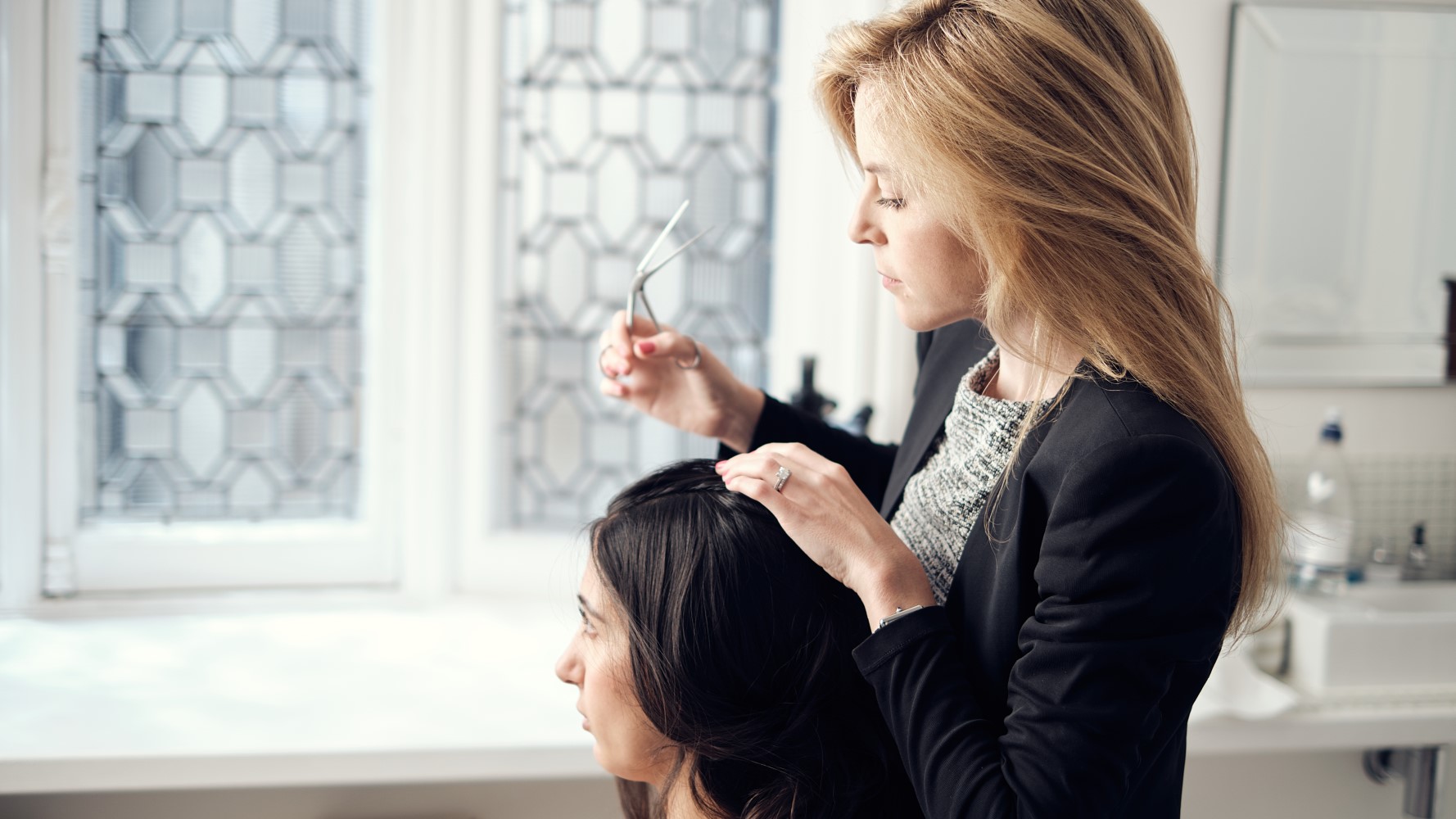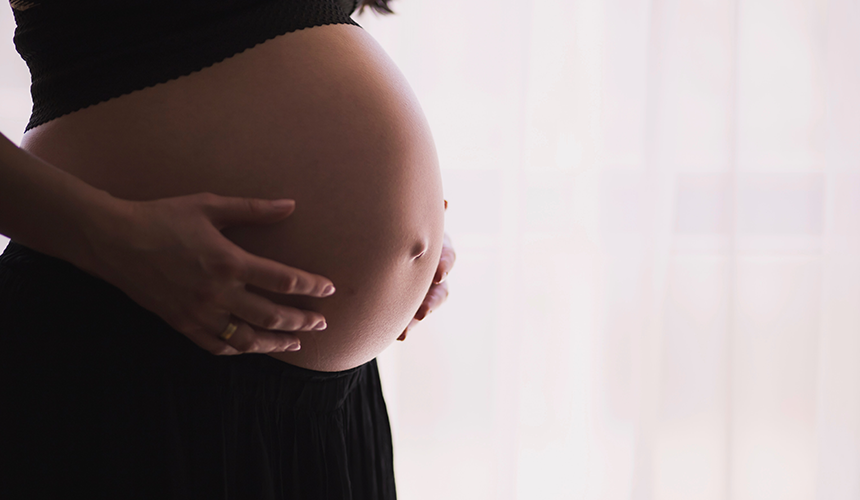Did you catch our first blog post with many pregnancy hair Q&As answered, including what to expect throughout your pregnancy and post-partum? In this instalment, Anabel explains how each trimester can bring new changes to our hair, the importance of maintaining optimum scalp health and how to deal with hair loss during pregnancy.
Is it normal to lose hair during pregnancy?
Anabel: I think it’s really important to set the record straight on this one. It’s not unusual for women to have excessive hair shedding during pregnancy. After all, pregnancy can be a pretty stressful time emotionally and physically, and this can impact our hair. However, hair loss during pregnancy is very rarely talked about, with most pregnancy-related hair information being about how lustrous, shiny and full a pregnant woman’s hair ‘should be’. This can leave women who experience hair loss during pregnancy feeling abnormal, and like there is something wrong with them. This is not the case at all!
Does hair loss vary by Trimester?
Anabel: In the first trimester, hair shedding can occur from things that happened before you become pregnant. Due to the nature of the hair growth cycle, it takes from 6-12 weeks for hair to shed after the event that caused it. For instance, you may experience shedding if you stopped your oral contraceptive pill, underwent numerous IVF rounds, or had a particularly stressful period in your life - even the stress of trying to get pregnant can be a causative factor.
In the second trimester, your hair can be affected by bad morning sickness that occurred during your first trimester. And hair shedding in your third trimester can be linked to medical conditions or nutritional deficiencies (like low iron and Vitamin D) that are common during pregnancy. Rapidly shifting hormone levels also affect women, and their strands, differently.
What can I do about hair loss during pregnancy?
Anabel: When it comes to pregnancy and hair, there is no normal; we are all unique. I, for one, haven’t had a great time with my tresses, and while it isn’t a fun symptom to have, there is nothing to worry about. Hair usually settles down by the third trimester, but even if it doesn’t – it almost always does so eventually.
In terms of what to do, you have to ride it out to a certain extent. Like most changes to your body during pregnancy, changes to your hair are somewhat out of your control. Eating a healthy, balanced diet, taking it easy, and addressing any nutritional deficiencies should help though.

Will pregnancy affect my scalp?
Anabel: Just as pregnancy can affect the skin on your face, it can also impact your scalp. Many women notice that their scalp becomes oilier and somewhat pimply during the first trimester. This is due to rapidly changing hormone levels. To remedy any oiliness and irritation, shampoo daily with a gentle but cleansing anti-microbial shampoo. I love our Flaky/Itchy Scalp Shampoo and Flaky/Itchy Scalp Toner - and have been using both throughout my pregnancy. By the end of your second trimester, and into your third, you may find your scalp does a full 360 and produces much less oil. Post-pregnancy, oiliness, flaking and itching may become problematic again, so keep your targeted scalp soothers handy.
For anyone with questions or concerns regarding their hair either during pregnancy or post-partum, we know how important it is to have someone understand and provide support. Our Trichological Clinics are offering Video and Telephone Consultations if you wish to seek the expertise of our world-renowned hair experts. Find out more information here.









